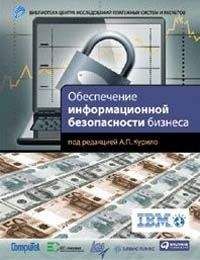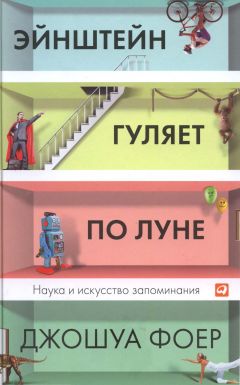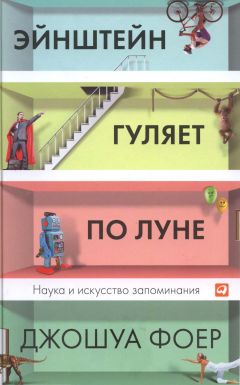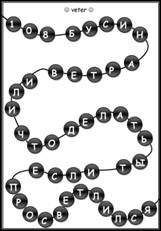Бхагаван Раджниш (Ошо) - Послания любви. 365 писем Ошо
See the instant in time,
see the atom in space.
In the time moment time ceases to exist.
In the space atom space ceases to exist.
There is no space, no time, here and now.
What is left is truth,
is God,
is that.
You too are that.
Tat tvam asi – that art thou.
152. Love.
Religion too has to take new birth in every age.
Bodies – all kinds of bodies – grow old and die.
Sects are the dead bodies of religion,
their souls have left them long ago.
Their languages have become out of date.
This is why they no longer touch
the human heart any more. Nor is their echo heard any more
in the human soul.
Once Dr. John A. Hutton, while speaking in a gathering of priests asked,
“Why have the preachings of religious leaders turned
so lifeless and dull?”
When nobody stood up to answer, he himself answered it by saying:
“They are all dull because preachers are trying to answer questions
that nobody is asking.”
Religiousness is eternal.
But its body should always be contemporary.
Neither is the body eternal, nor can it be – not even the body of religion.
153. Love.
Drop the fear,
because the moment you hold on to it, it multiplies.
To hold on to it is to nourish it.
But dropping fear does not mean fighting with it.
To fight is also to hold on to it.
Just know that fear is.
Do not run away from it,
do not escape.
In life there is fear,
there is insecurity,
there is death –
just know this.
All these are facts of life.
Where would you run from them?
How would you avoid them?
Life itself is such.
And its acceptance, its natural acceptance, is the freedom from fear.
Once fear is accepted, where is it?
Once death is accepted, where is it?
Once insecurity is accepted, where is it?
Acceptance of the wholeness of life is what I call
sannyas, initiation on the path.
154. Love.
Attainment of meditation is not a question of time,
it is a question of will.
If the will is total, meditation happens in a moment too.
And a mind without will can go on wandering
for lives upon lives.
Intensify the will.
Crystallize the will.
Make the will total.
And then, meditation will knock
upon your door on its own.
And the mind certainly tortures one as long as meditation is absent.
Mind is the name for the absence of meditation,
just as darkness is the name for the absence of light.
As the light arrives, darkness leaves.
As meditation arrives, the mind leaves.
Hence, now drown into meditation.
All else follows on its own.
155. Love.
The world is neither unhappiness nor happiness.
The world becomes the same as we see it.
Our vision is the world.
Each person is the creator of his own world.
If every moment of life gives you unhappiness,
then the mistake is somewhere in your own vision.
And if all that you see around you is darkness,
then certainly you are keeping closed the eyes that see light.
Give a fresh thought to yourself.
Look at yourself from a new angle.
If you put the blame on others, you will never be able to see
your own mistake.
If you put the blame on circumstances, you will not be able
to penetrate the roots of your own mental state.
Hence, whatever the situation, proceed to discover
its causes in yourself.
Causes are always in one’s own self.
But they always appear to be in others.
Avoid this mistake and it will be difficult
to preserve your unhappiness.
Others function only as mirrors.
The face seen is always our own.
Life can become a celebration.
But it is necessary to create oneself anew.
And that is not a difficult thing.
Because in the very seeing of the fault in one’s own vision the mistakes
start dying and the birth of a new person begins.
156. Love.
Do not fight with yourself.
Such a fight is futile.
Because victory never, ever comes through it.
To fight with oneself
is nothing other than a gradual suicide.
Accept yourself.
Happily. In gratitude.
What is, is good.
Sex too, anger too.
Because whatsoever is, is from the divine.
Accept it and understand it.
Search and uncover the hidden potential in it.
Then, even sex feels to be a seed towards the divine.
And anger becomes the door to forgiveness.
Evil is not an enemy of goodness.
Rather, evil is only imprisoned goodness.
157. Love.
Strive for meditation.
Then all problems of the mind will disappear.
In fact, mind is the problem.
All the rest of the problems are only echoes of the mind.
Nothing will come of fighting
each and every problem separately.
Fighting with echoes is futile,
there is no outcome of it other than defeat.
Do not prune the branches, because four other branches
will replace that one pruned branch.
By pruning branches, the tree only grows more.
And, the problems are the branches.
If you want to cut at all, cut the roots,
because by cutting the roots the branches disappear on their own.
And mind is the root.
Cut this root with meditation.
Mind is the problem.
Meditation is the solution.
Mind knows no solution.
Meditation knows no problem.
Because, there is no meditation in the mind.
Because, there is no mind in meditation.
Absence of meditation is mind.
Disappearance of mind is meditation.
This is why I say: strive for meditation.
158. Love.
Don’t be in haste.
Maintain patience.
Patience is a fertilizer for meditation.
Go on tending meditation,
the fruit is bound to come,
it always comes.
But, do not be anxious about the fruit.
Because such an anxiety itself becomes an obstacle for the fruit.
Because such a worry distracts the attention from meditation.
Meditation requires total attention.
To be divided won’t do.
Partiality won’t do.
Meditation is not possible without your totality.
Hence, stay with the act of meditation and leave the fruit of meditation
in the hands of the divine.
And the fruit comes.
Because drowning totally in meditation is the birth of the fruit.
159. Love.
Life is not divided, either in time or in space.
If life is anything, it is undividedness – it is an undivided flow.
Past, present, future – these are human lines drawn on the undivided
flow of time.
Indeed, they are nowhere except in the minds of men.
Mind is time.
Similarly, space is also undivided.
The body is not one’s limit – in fact, the limit or non-limit of the whole
is one’s limit.
But, the mind does not rest without dividing.
It is like a prism; to divide is its function.
Passing through it the ray of existence becomes divided into many rays
and many colors.
What is one at the root becomes many at the branches.
The root is eternal – beginningless, endless.
Branches are in time – they have their beginning, they have their end.
Branches are change.
The root is ever-lasting.
Neither the root changes nor can it be changed.
Yes – one can desire it to be changed, and then such a desire
inevitably takes one into failure and anguish.
Branches go on changing.
They cannot be stopped from changing.
But certainly it can be desired that they don’t change, and then
such a desire inevitably transforms itself into failure and anguish.
The West is in the first kind of failure and anguish.
The East is in the second kind of failure and anguish.
And so far man has not been able to give birth to such a culture
which not only succeeds but becomes fulfilled too.
The two realities I have talked about above – the reality of the root
and the reality of the branches; the law of the intransient
and the law of the transient – it is only in the harmonious balance
of these two that such a culture can be born
which will neither be polar nor lopsided,
which will use the tension of the opposite poles, the same
as architecture
uses opposing bricks in creation of an arched door.
The truth of life is pluralism.
And, the stream of life always flows taking the opposite poles
as its banks.
160. Love.
We just do not know life, that is why we get bored.
We make life mechanical, that is why we get bored.
We are not living life, we only drag along with it, that is why we get bored.
Boredom is not in life, rather it comes out of our fear of living.
We are not only afraid of death – we are afraid of life as well.
In fact, we fear death because we fear life.
Otherwise, death is not the end of life – it is the completion of life.
This is why I say: live – live fearlessly.
Let go of the past: man goes on carrying it because of fear.
And do not invite dreams of the future, because in order to avoid living today
man plans for living in the future.
Live today, and now, and here.
‘Tomorrow’ is a deception –
the ‘tomorrow’ that has passed as yesterday, as well as the tomorrow
that is yet to come.
Only this moment is.
Only this moment is eternal.
161. Love.
Life is a mystery.
It can be lived.
It can also be known by living it.
But it cannot be solved like a mathematical problem.
It is not a problem – it is a challenge.
It is not a question – it is an adventure.
Hence, those who only go on asking questions about life remain,
by this action, deprived of the answer forever.
Or acquire answers which are not answers at all.
It is such answers that one acquires from scriptures.
In fact, an answer acquired from any other source
cannot be an answer.
Because the truth of life cannot be borrowed.
Or such questioners fabricate answers of their own;
thus they certainly gain consolation, but not solutions.
Because fabricated answers are not answers.
Only the experience can be an answer.
Hence, I say: do not ask – live and know.
This is the difference between philosophy and religion.
To ask is philosophy, to live is religiousness.
And, the interesting thing is that philosophy asks but never gets the answer,
and religion does not ask at all and yet attains the answer.
162. Love.
Society is only a collectivity of individuals.
Hence, finally and essentially, it is a reflection of the minds
of the individuals.
If the individual mind is without peace, the society cannot be at peace.
Only a radical transformation of the individual mind can become the peace
of the society.
There is no other alternative.
Nor is there any shortcut.
The technique for individual transformation is meditation.
With more and more people moving into meditation; only then
is something possible.
To take shelter in the divine is the only way.
1971
163. Love.
You ask for the way to make the invisible visible?
Pay attention to the visible.
Do not just see, pay attention.
It means, when you see a flower,
let your whole being become the eye.
When you listen to the birds, let your entire body-soul become the ear.
When you look at a flower, do not think.
When you listen to birds, do not ponder.
Let the total consciousness
either see or hear or smell or taste or touch.
Because it is due to a shallowness of sensitivity that the invisible is unable
to become visible,
and the unknown remains unknown.
Deepen the sensitivity. Do not just swim in sensitivity, drown in it.
This I call meditation.
And, in meditation, the seen disappears
and finally the seer too. There remains only the seeing.
It is in this seeing that the invisible becomes visible
and the unknown becomes known.
Not only this – even the unknowable becomes knowable.
And remember that whatever I am writing –
do not start thinking about this as well: act.
Nothing has ever been nor can be attained
by creating theories.
There is no other door except ‘seeing for oneself’.
164. Love.
You ask: how far is the destination?
Ah! The destination is very far, and very near too.
And the distance or the nearness of the destination
is not dependent on the destination but upon you yourself.
The deeper the will, the nearer the destination.
If the will is total, then you yourself are the destination.
165. Love.
The word is not the thing –
the word God is not God.
But the mind goes on accumulating words and
words and words,
and then the words become the barrier.
See this as a fact with you:
can you see anything without the word?
Can you feel anything without the word?
Can you live even for a single moment without the word?
Do not think but see
and then you will be in meditation.
To exist wordlessly is to be in meditation.
166. Love.
Always see what is –
the facts.
That which is.
Do not project anything,
do not interpret,
do not impose any meaning:
that is, do not allow your mind to interfere,
and you will begin to encounter reality.
Otherwise everyone lives in his own world of dreaming.
And meditation is the coming out of these worlds,
these dreaming patterns.
A philosopher stopped Mulla Nasruddin on the street.
In order to test whether the Mulla
was sensitive to philosophical knowledge
he made a sign, pointing at the sky.
The philosopher meant: There is only one truth,
which covers all.
Nasruddin’s companion, an ordinary man, thought:
The philosopher is mad.
I wonder what precautions Nasruddin will take.
Nasruddin looked in his knapsack and took out a coil of rope.
This he handed to his companion.
Excellent, thought the companion.
We will bind him up if he becomes violent.
The philosopher saw that Nasruddin meant:
Ordinary humanity tries to find truth by methods
as unsuitable as attempting to climb
into the sky with a rope.
Now can you remain content with the fact
of Mulla Nasruddin giving the rope to his companion




